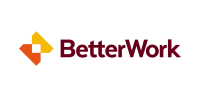About Better work
Better Work: Promoting Decent Work and Better Business in the Garment Industry
Better Work is a unique collaboration between the International Labour Organization (ILO) and the International Finance Corporation (IFC) that aims to promote decent work and better business practices in the global garment industry. With a focus on improving working conditions, productivity, and competitiveness, Better Work has become a leading force for positive change in this critical sector.
The garment industry is one of the largest employers in many developing countries, providing jobs for millions of people around the world. However, it is also an industry that has been plagued by poor working conditions, low wages, and other labor rights violations. This has led to widespread criticism from human rights organizations and consumer groups alike.
In response to these challenges, Better Work was established as a joint initiative of the ILO and IFC in 2007. The program operates in eight countries across Asia, Africa, Central America, and the Caribbean – all major garment-producing regions – with plans to expand further.
The core mission of Better Work is to improve working conditions for garment workers while also enhancing productivity and competitiveness for factories. To achieve this goal, Better Work provides training programs for factory managers on topics such as labor law compliance, health and safety standards, productivity improvement techniques, worker-management communication skills etc.
At the same time,Better work conducts assessments on factories' compliance with international labor standards such as freedom of association; collective bargaining; elimination of forced or compulsory labour; abolition of child labour; elimination of discrimination etc., which are based on national laws but go beyond them where necessary.
By promoting better working conditions,Better work helps factories attract more orders from international buyers who increasingly demand ethical sourcing practices.Better work's assessments are conducted by independent auditors who provide feedback reports highlighting areas where improvements can be made.Based on these reports,factories receive recommendations from BW staffs who help them develop action plans aimed at addressing identified issues.The program also facilitates dialogue between workers' representatives,factory management,and buyers through its grievance mechanism which allows workers to report any concerns they may have about their workplace without fear or retaliation.
Through its efforts,Better work has helped improve working conditions for thousands of garment workers around the world while also boosting productivity levels at participating factories.In addition,the program has helped create more sustainable supply chains by encouraging responsible sourcing practices among international buyers.This not only benefits factory owners but also helps ensure that consumers can purchase clothing products with confidence,knowing that they were produced under fair labor standards.
Overall,Better work represents an innovative approach towards promoting decent work practices within one of today's most important industries.Its success demonstrates how collaboration between different stakeholders can lead to positive outcomes both socially,economically,and environmentally.The program continues to evolve,growing stronger each year as it expands into new regions around the globe.With its commitment towards creating lasting change within this vital sector,Better work remains an inspiration for others seeking ways to promote social responsibility within their own industries.
